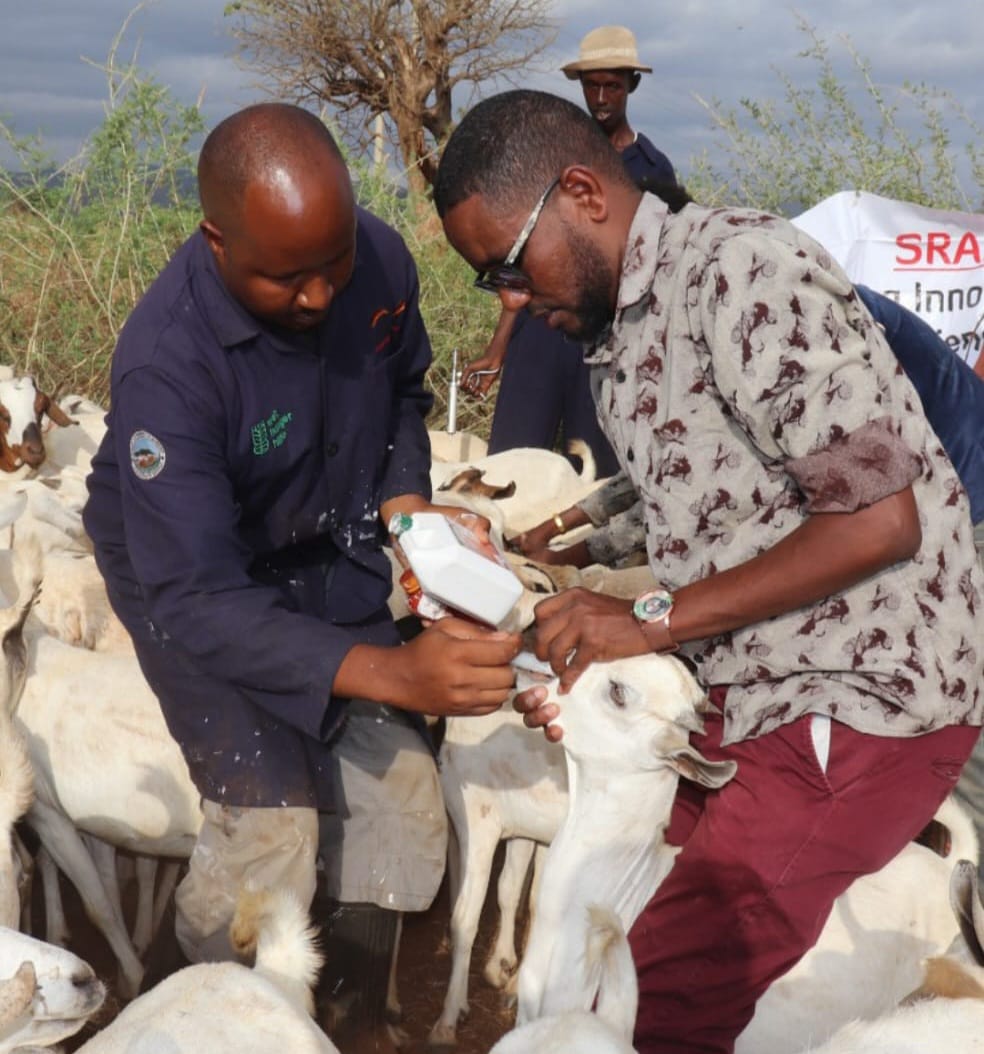When drought ravaged Marsabit County in 2022, the impact was devastating.
In Antut and Qoloba villages, Moyale Sub-county, entire herds were wiped out, leaving families without food, income, or hope.
The crisis hit the most vulnerable the hardest: children, the elderly, pregnant women, and lactating mothers, while escalating tensions between the Borana and Gabra communities, who have a long history of inter-communal conflict.
Amid despair, a livestock restocking initiative has brought signs of renewal. Implemented by PACIDA through the SRAPLEA 2 project, with support from Welthungerhilfe (WHH) and funding from the German Federal Ministry for Economic Cooperation and Development (BMZ), the program distributed drought-resistant hybrid goats to households most affected by the disaster.
“Restocking was chosen because these are purely pastoralist communities whose culture and economy revolve around livestock. The communities had also embraced peace, making them ready to rebuild,” explained PACIDA Project Manager, Mamo Malate.
The project adopted a collaborative approach, engaging community elders, government livestock officers, and local administrators in site and beneficiary selection.
Public forums helped identify the most vulnerable families, those without livestock, orphan-headed households, and families with members living with disabilities.
A total of 140 goats were distributed, with 70 goats per village. Most households received three goats each, while two families in greater need received four, in line with Ministry of Agriculture and Livestock guidelines.
For Qoloba resident Abshiro Dalacha, a mother of three, the goats were a lifeline.
“I had no livestock before. I received three goats, and now I have five. I milk two of them for my children and sell the rest to neighbours,” she said.
In Antut, Galgalo Guyo lost 40 goats, 10 camels, and 20 cows during the drought.
With water still scarce, he walks up to 17 kilometres to fetch it. Yet, the three goats he received have restored some stability.
“We have milk, and if there’s a financial need, I can sell the young ones,” he said.
As a community-based coach, Guyo also monitors herd health, advising families on disease prevention.
“You can now walk through the villages and see goat sheds that were once empty, occupied again,” he noted.
Beyond restoring food and income, the program has strengthened peace and reduced dependency.
In Antut and Qoloba, milk is flowing again, animals are back in the sheds, and pastoralist pride is being restored, one goat at a time.

